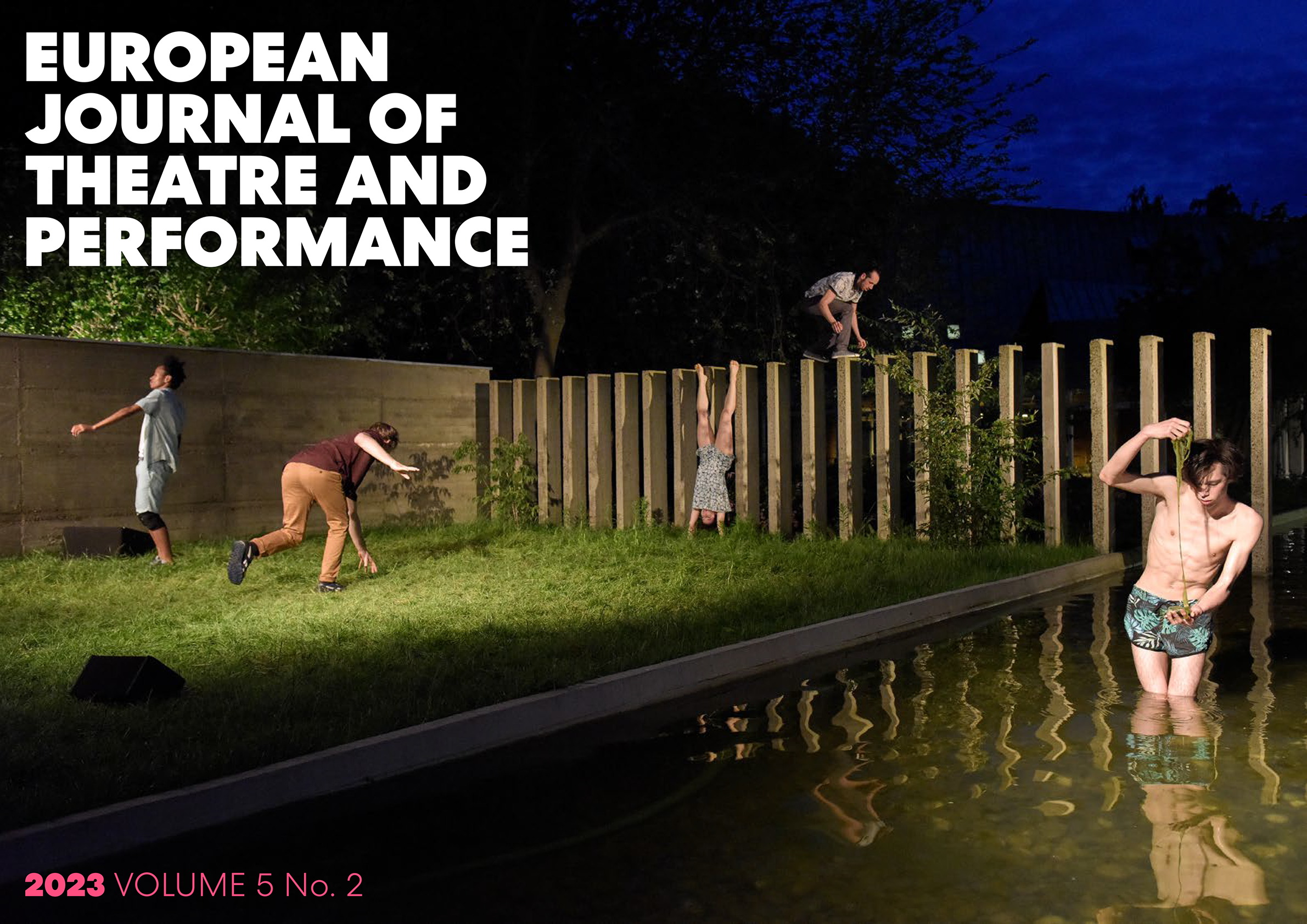We Are All Bodies of Water: Su Rita Natálio, idrofemminismo e spillover
DOI:
https://doi.org/10.21827/ejtp.6.42246Keywords:
hydrofeminism, embodied theory, twerking, vibrant matter, performance and ecopoliticsAbstract
Everything begins in a dried-up well. In the waterless depths, a copy of the book that Monique Wittig and Sande Zeig had published in 1976 is found: Brouillon pour un dictionnaire des amantes. Rita Natálio, choreographer, researcher, activist, and non-binary lesbian from Portugal, takes this discovery as a starting point to explore in her latest lecture-performance the forms in which lovers – or what she calls ‘Spillovers’ – manifest themselves, make alliances, and where matter flows and vibrates, or settles and waits, like Wittig and Zeid’s pages in the well’s depths. The essay follows and analyzes the critical genealogies activated by Natálio in this performance, in which the artist assembles a dizzying path between feminist and queer epistemologies, cultural studies, postcolonial theories, biopolitics, and environmental activism, through a hybrid operation between public production of knowledge and affective and sensual contagion of bodies.
Published
Issue
Section
Copyright (c) 2023 Annalisa Sacchi

This work is licensed under a Creative Commons Attribution 4.0 International License.

